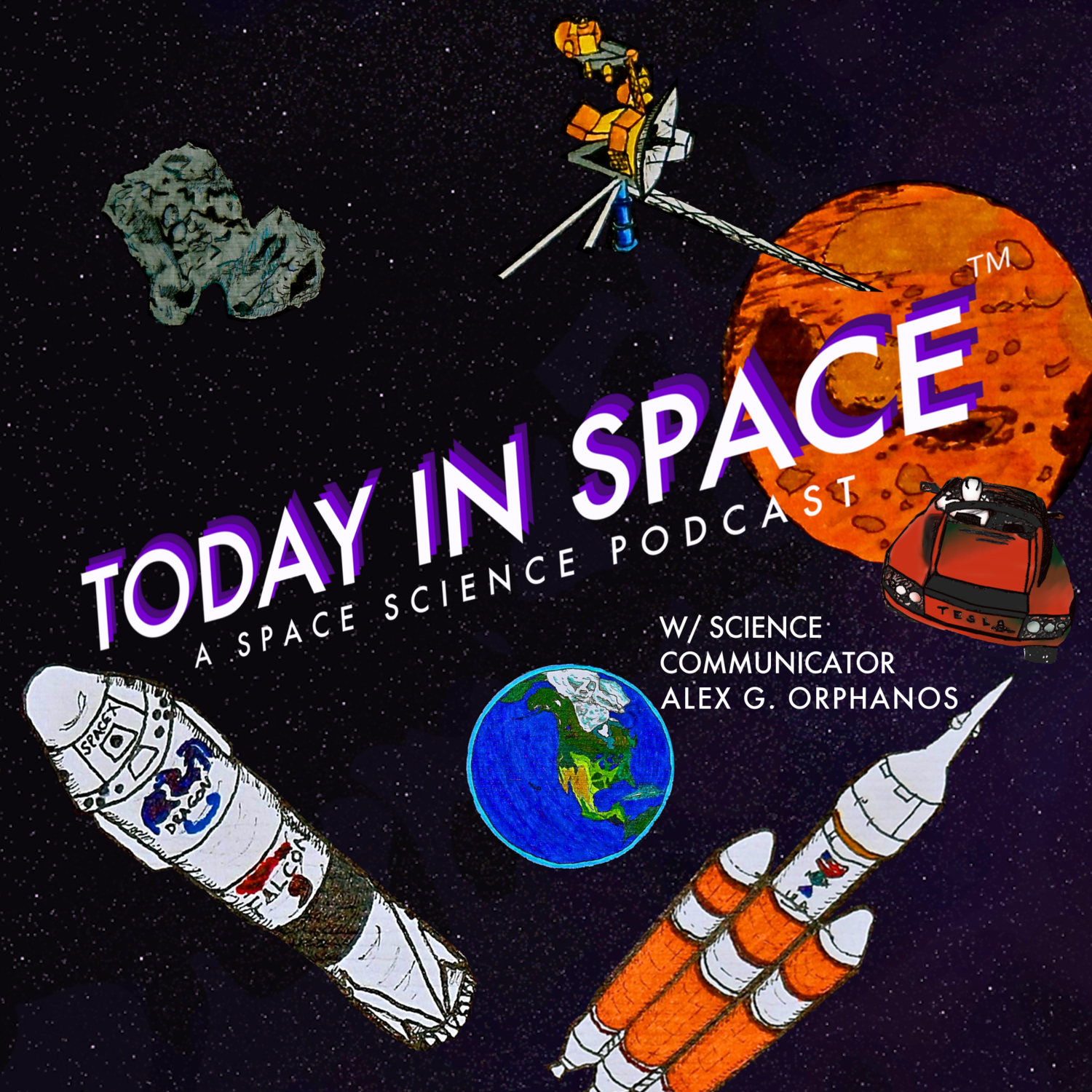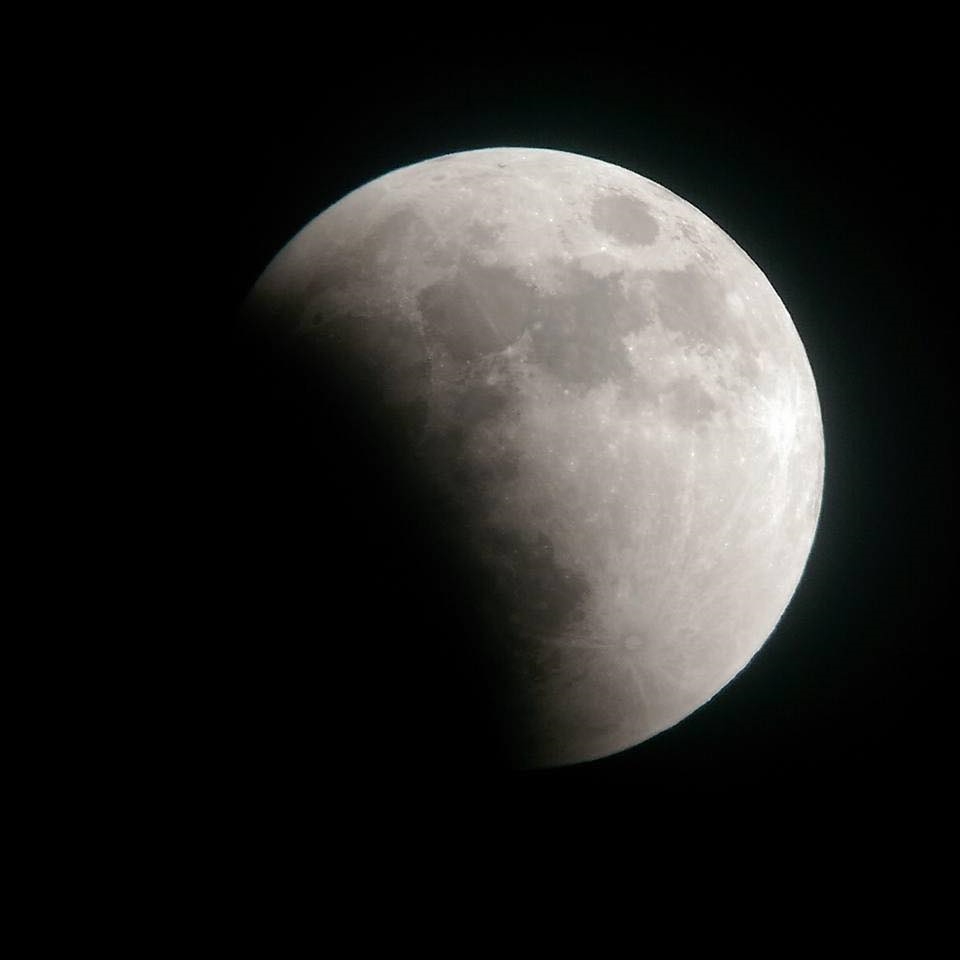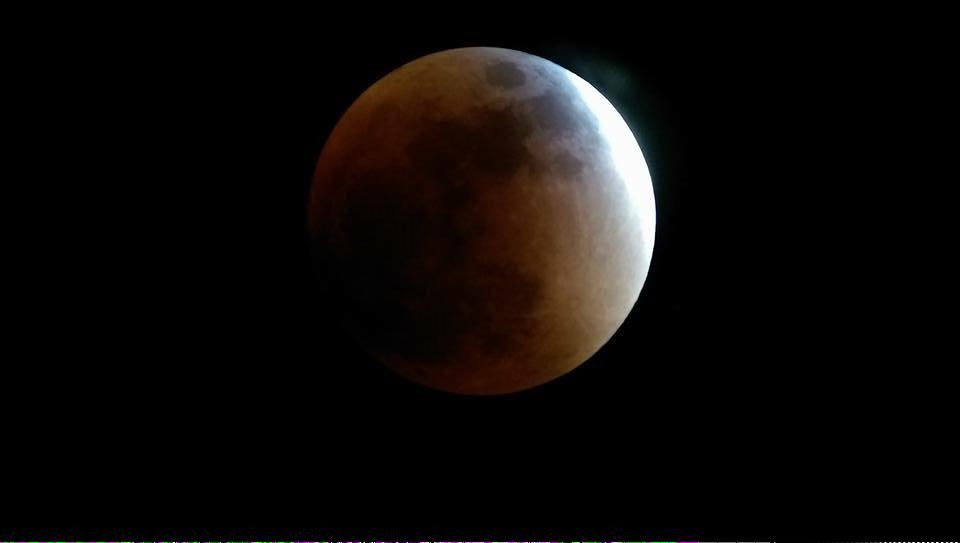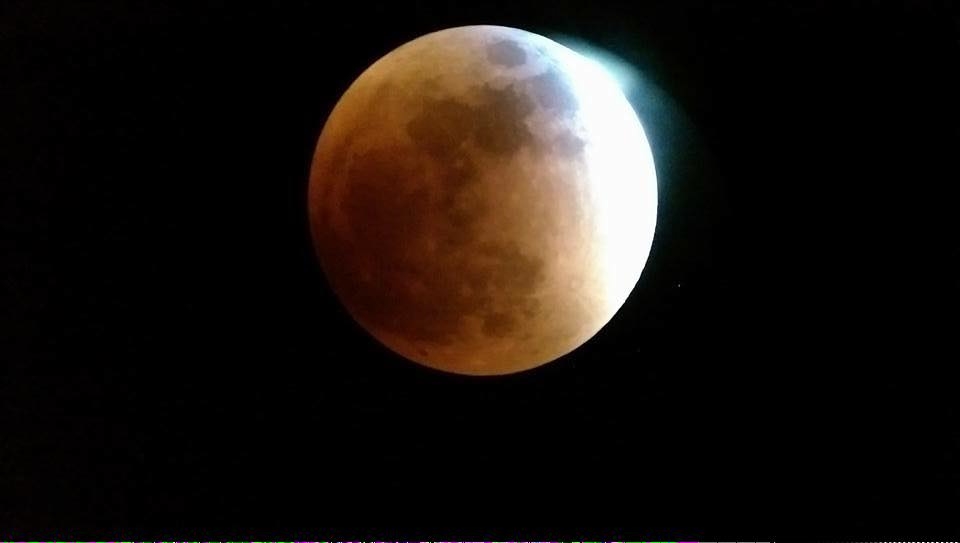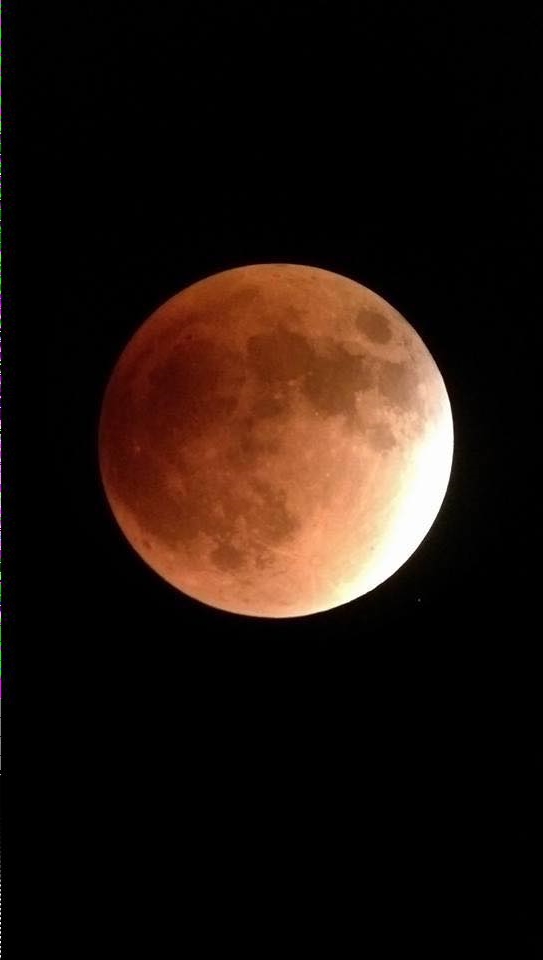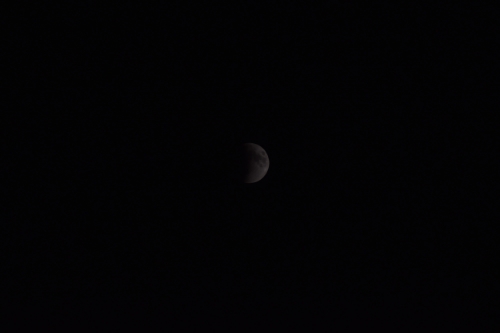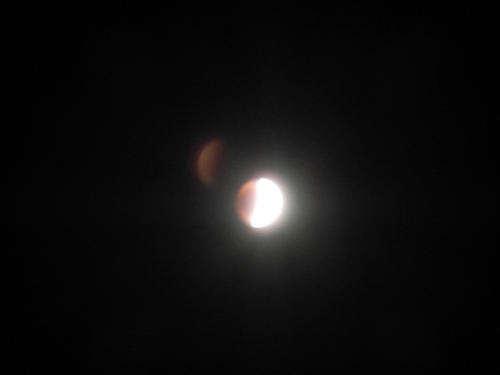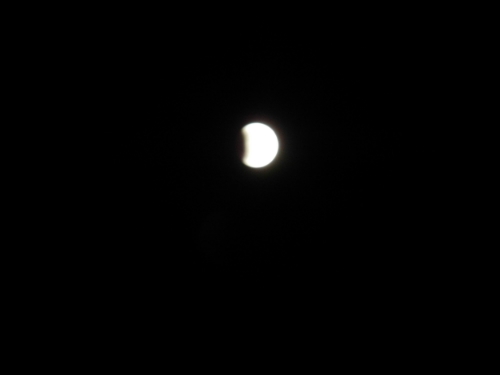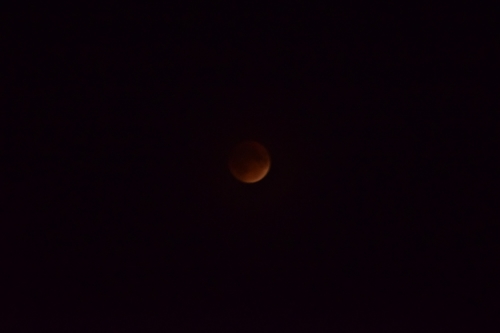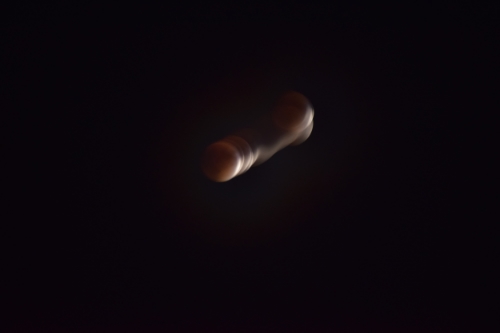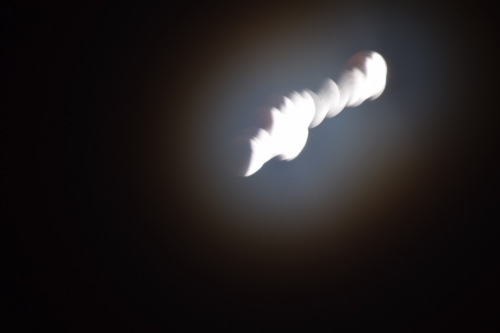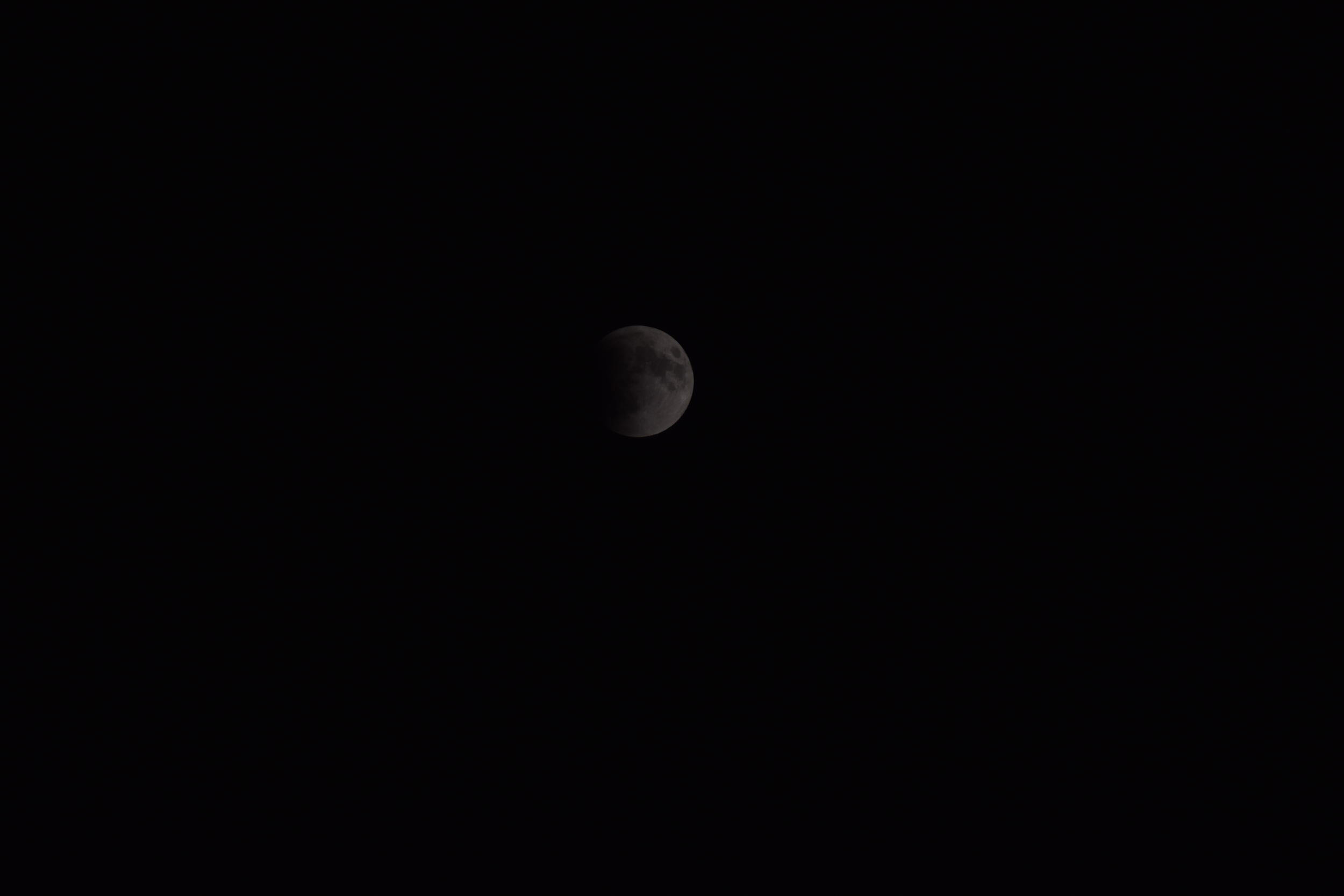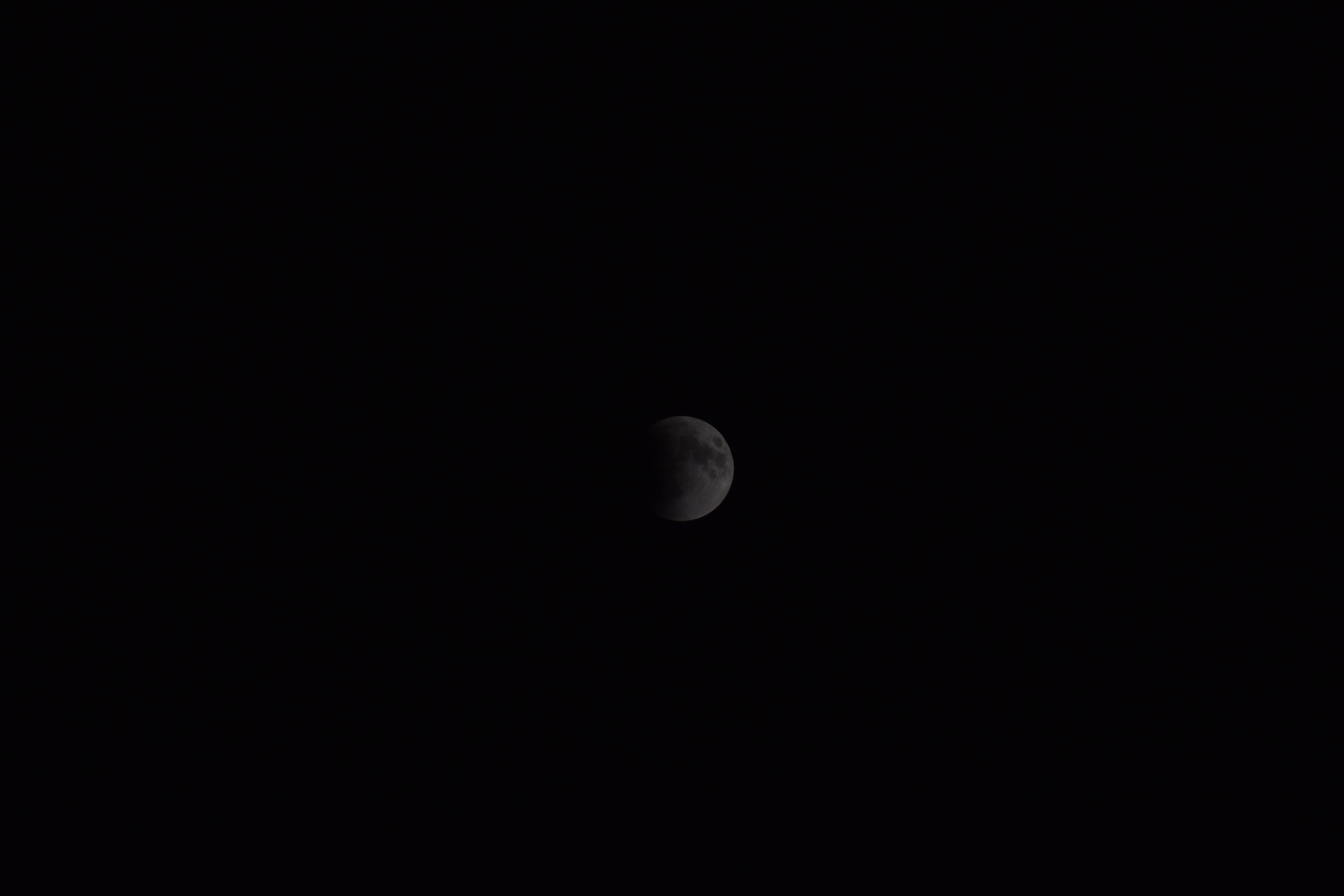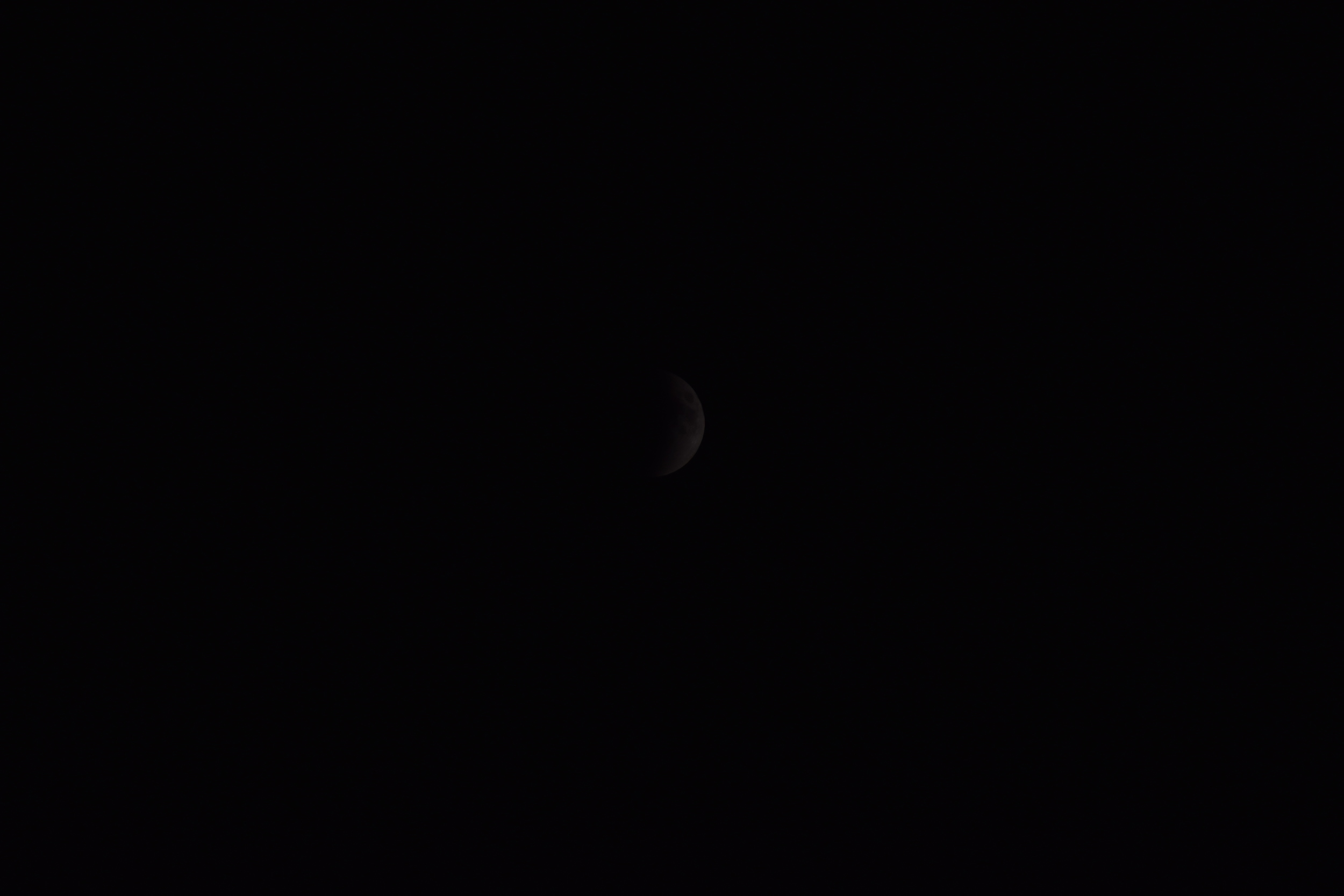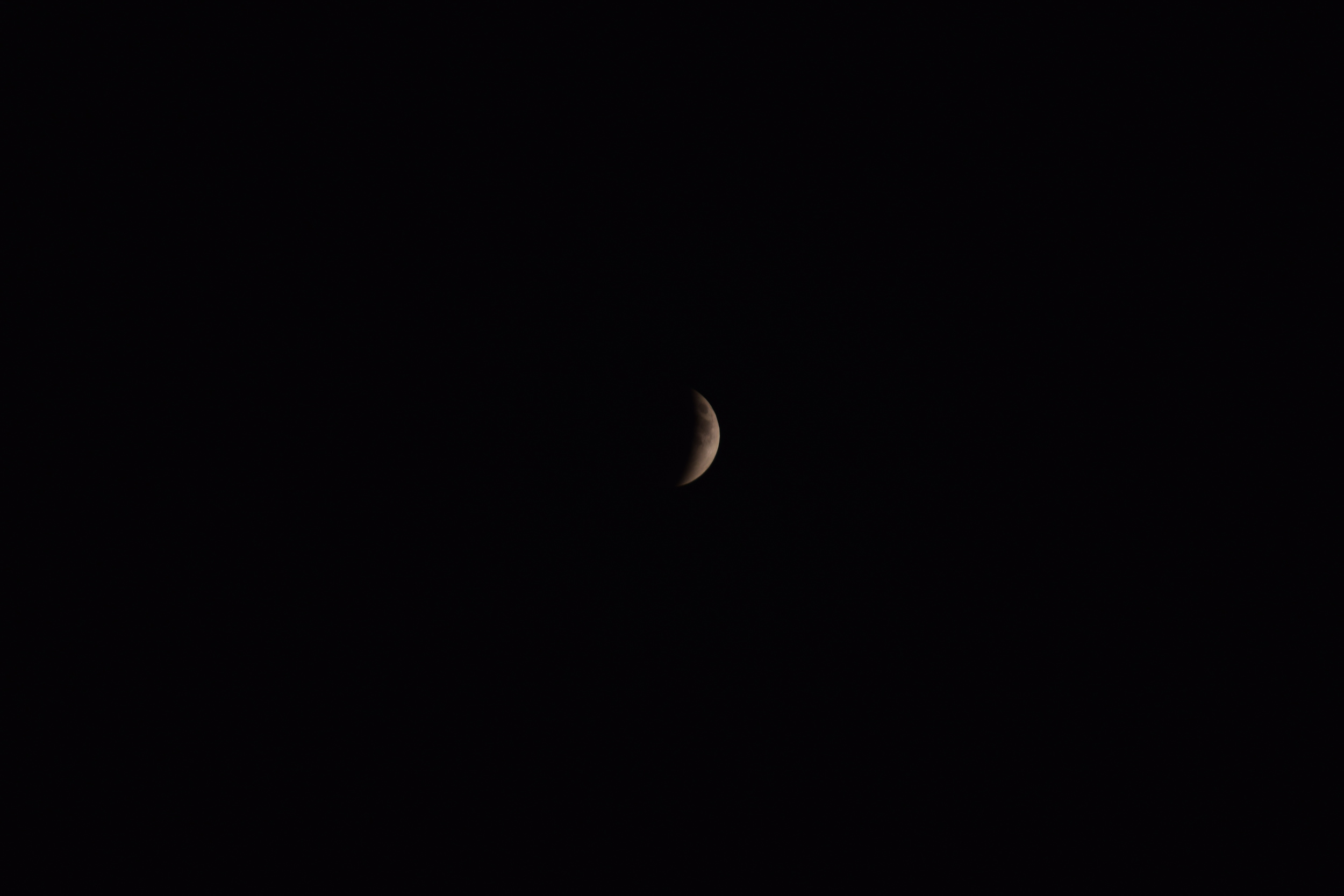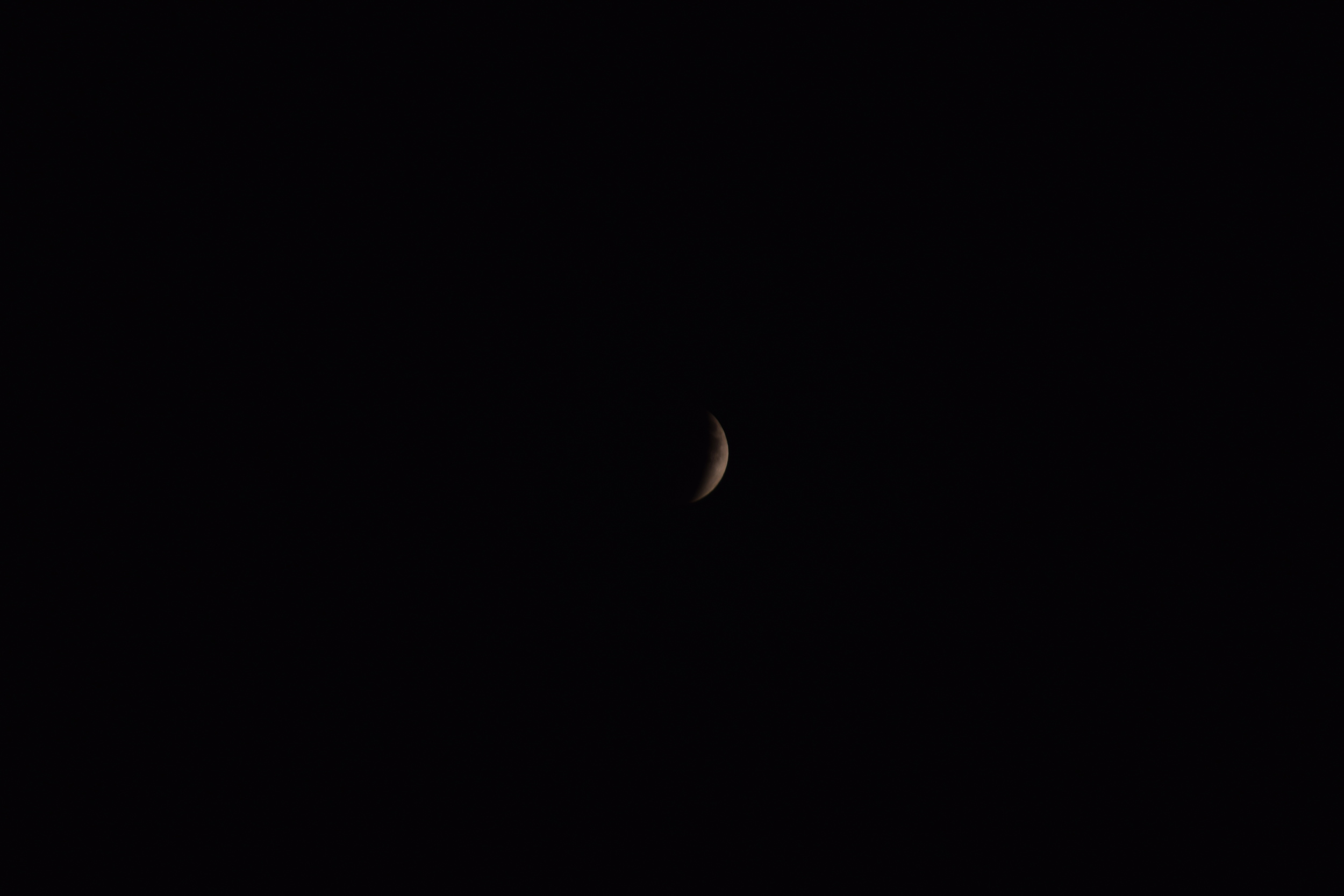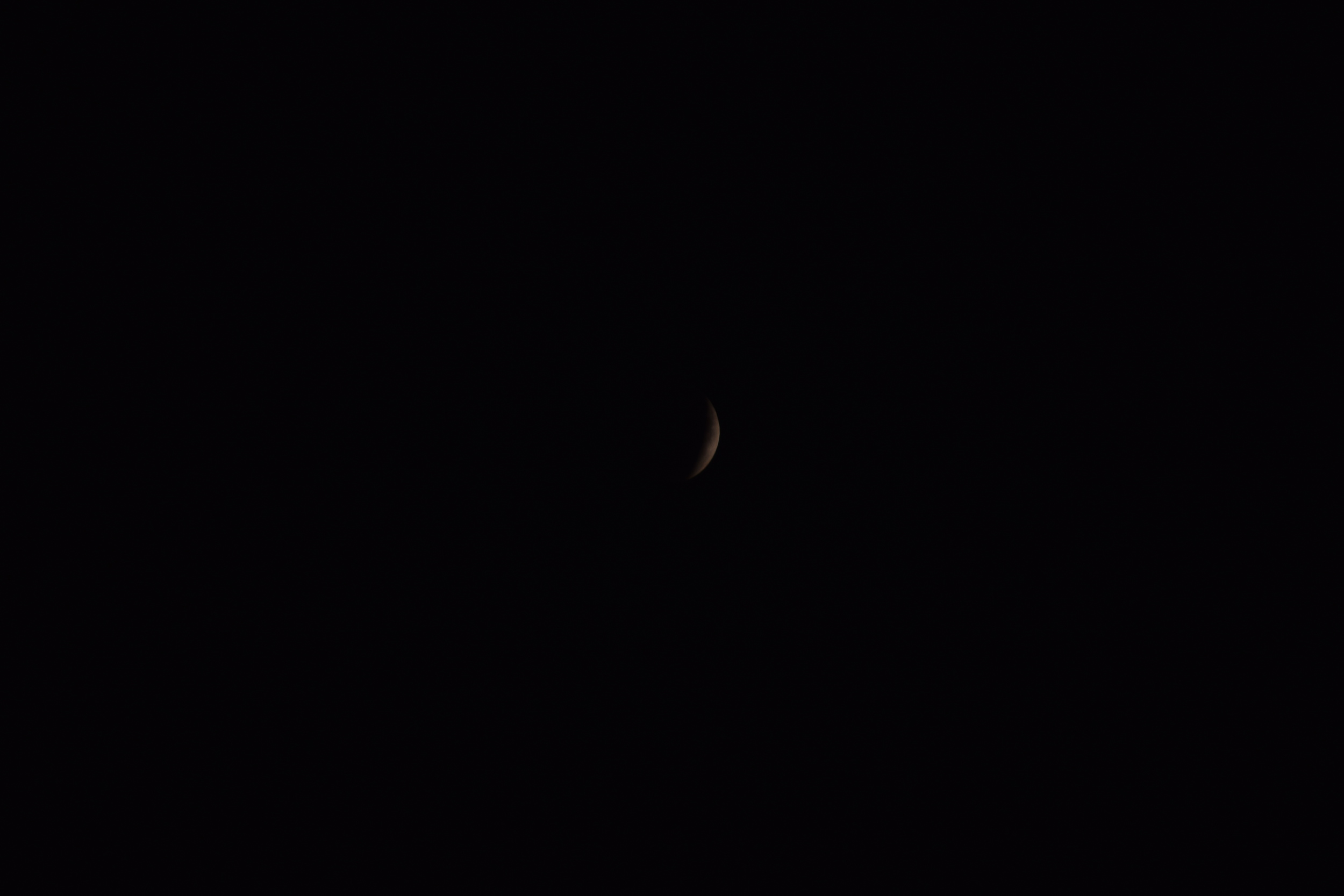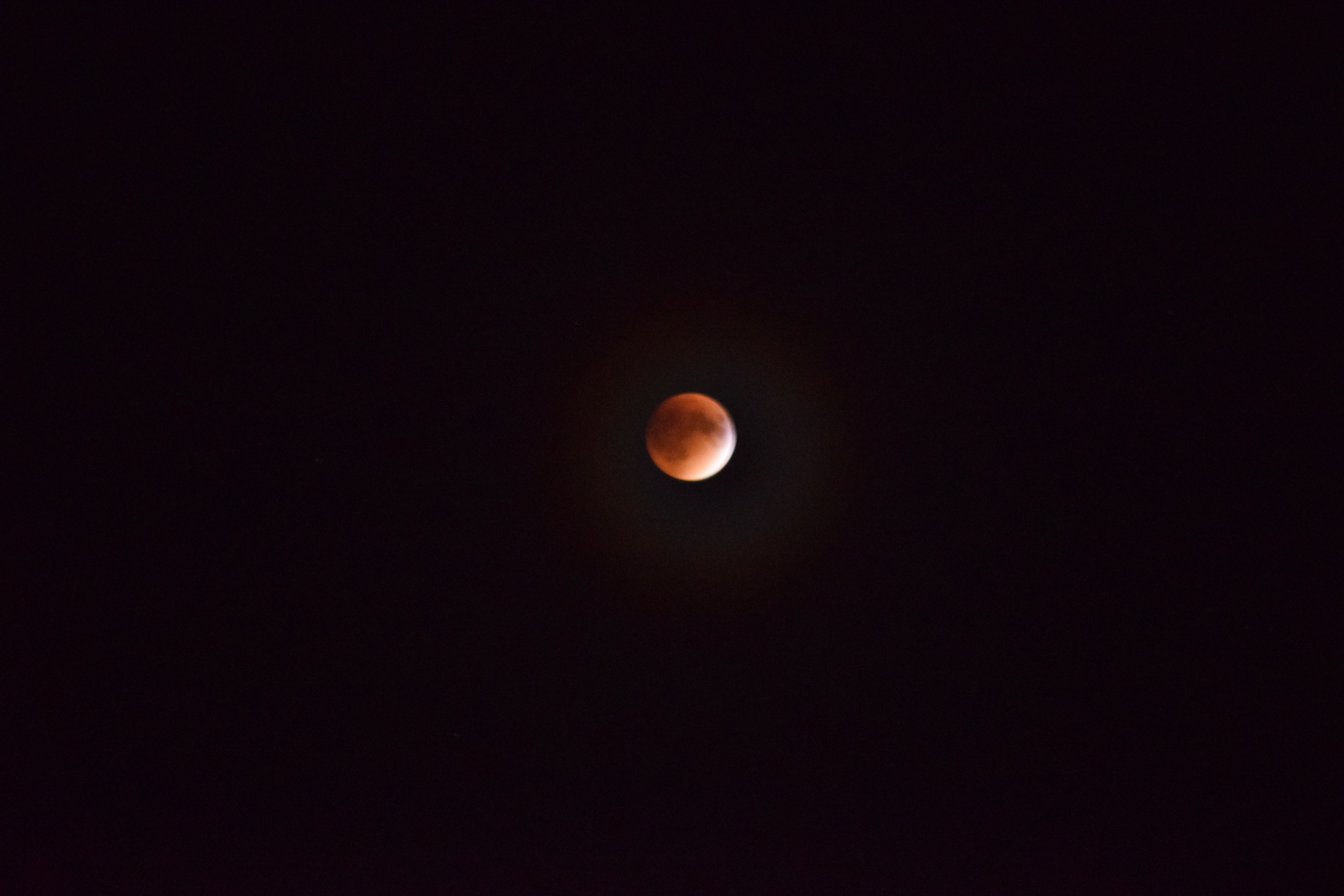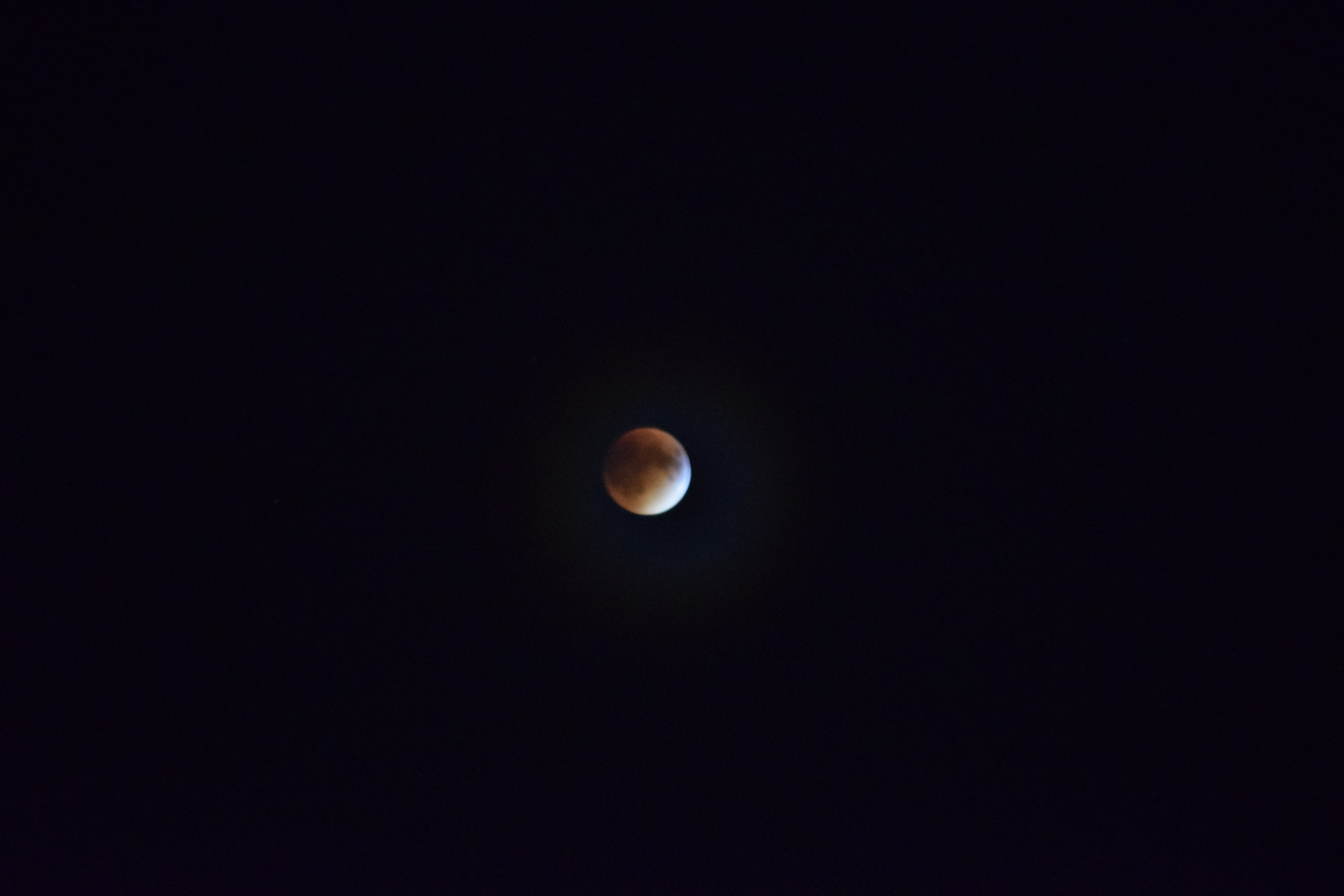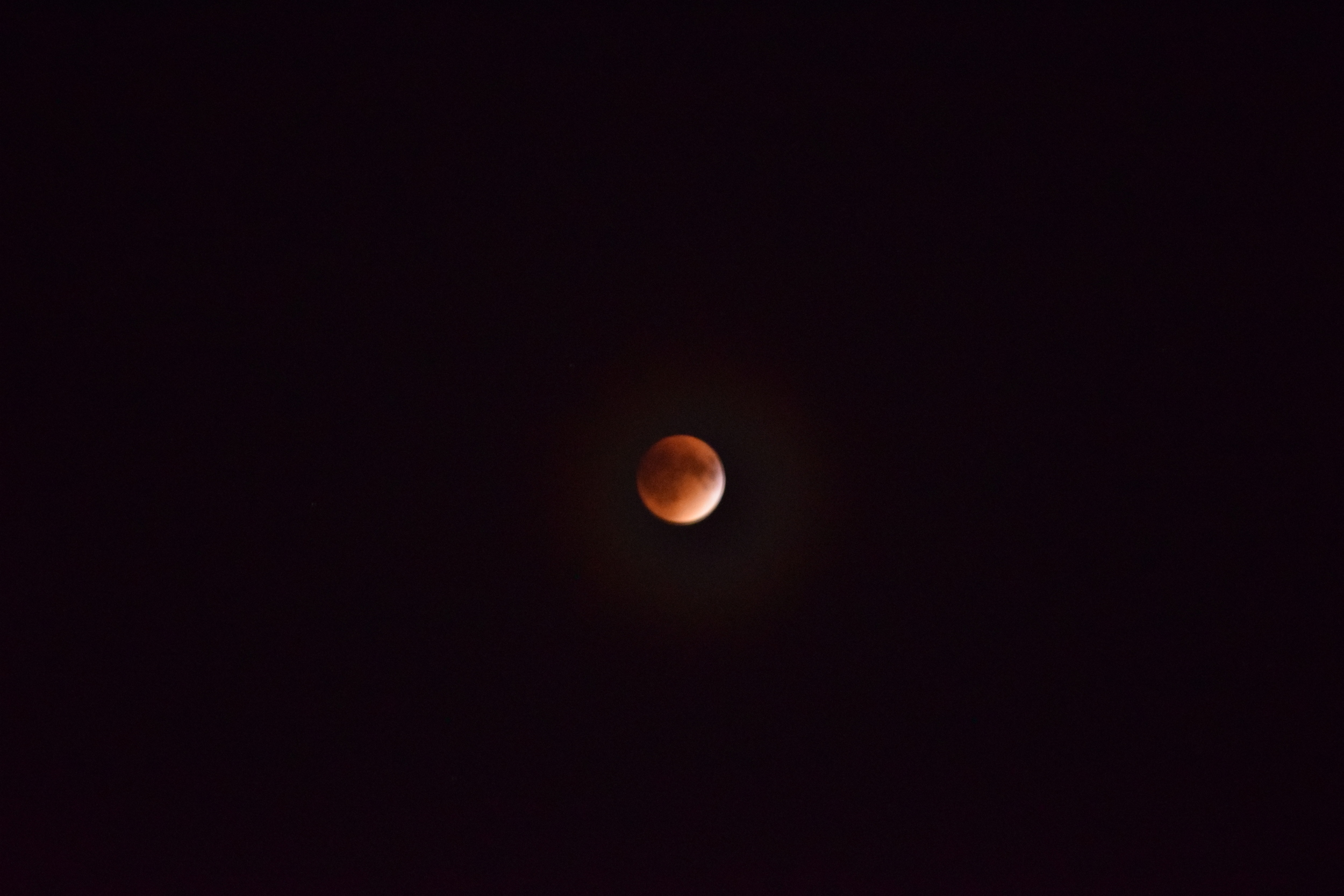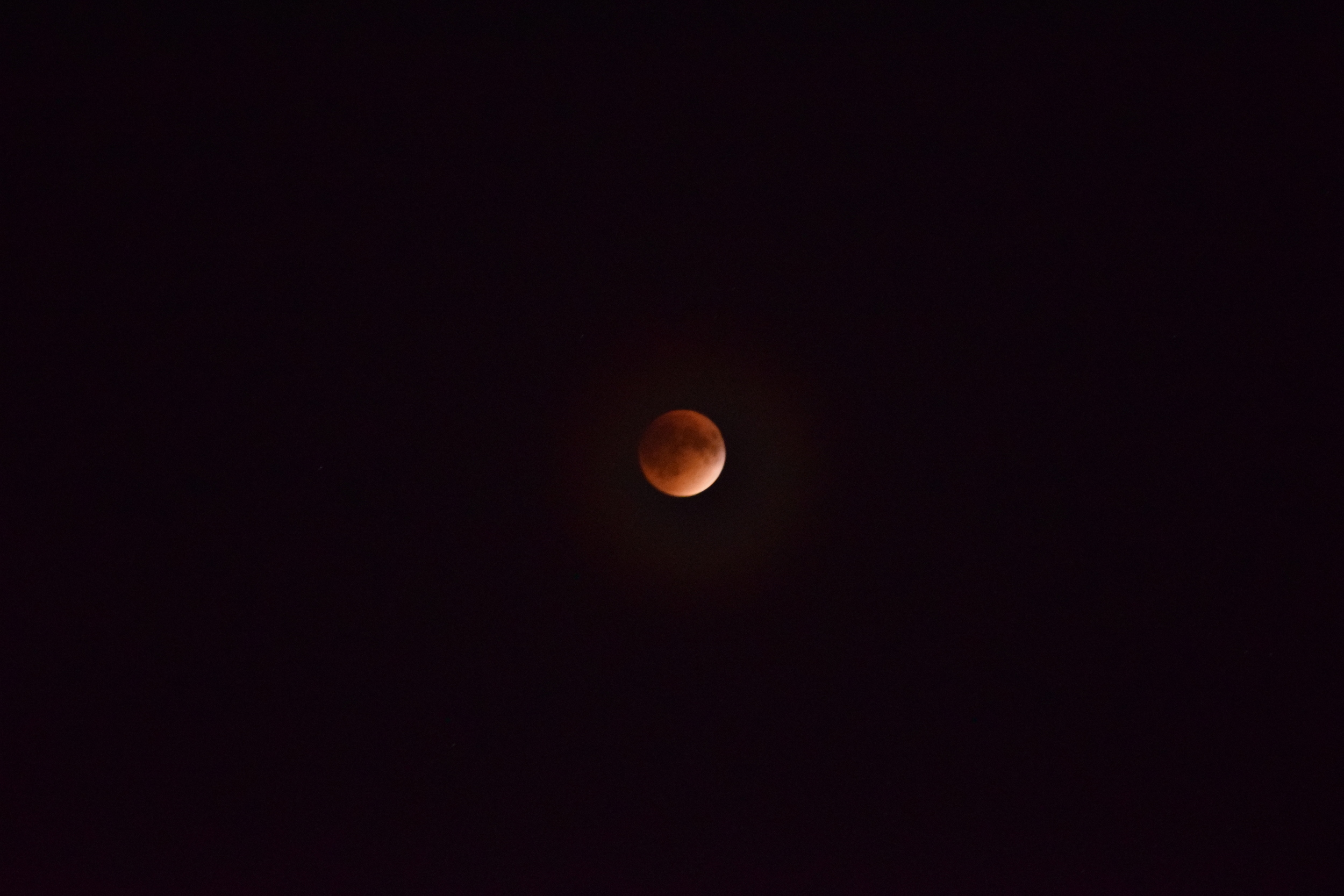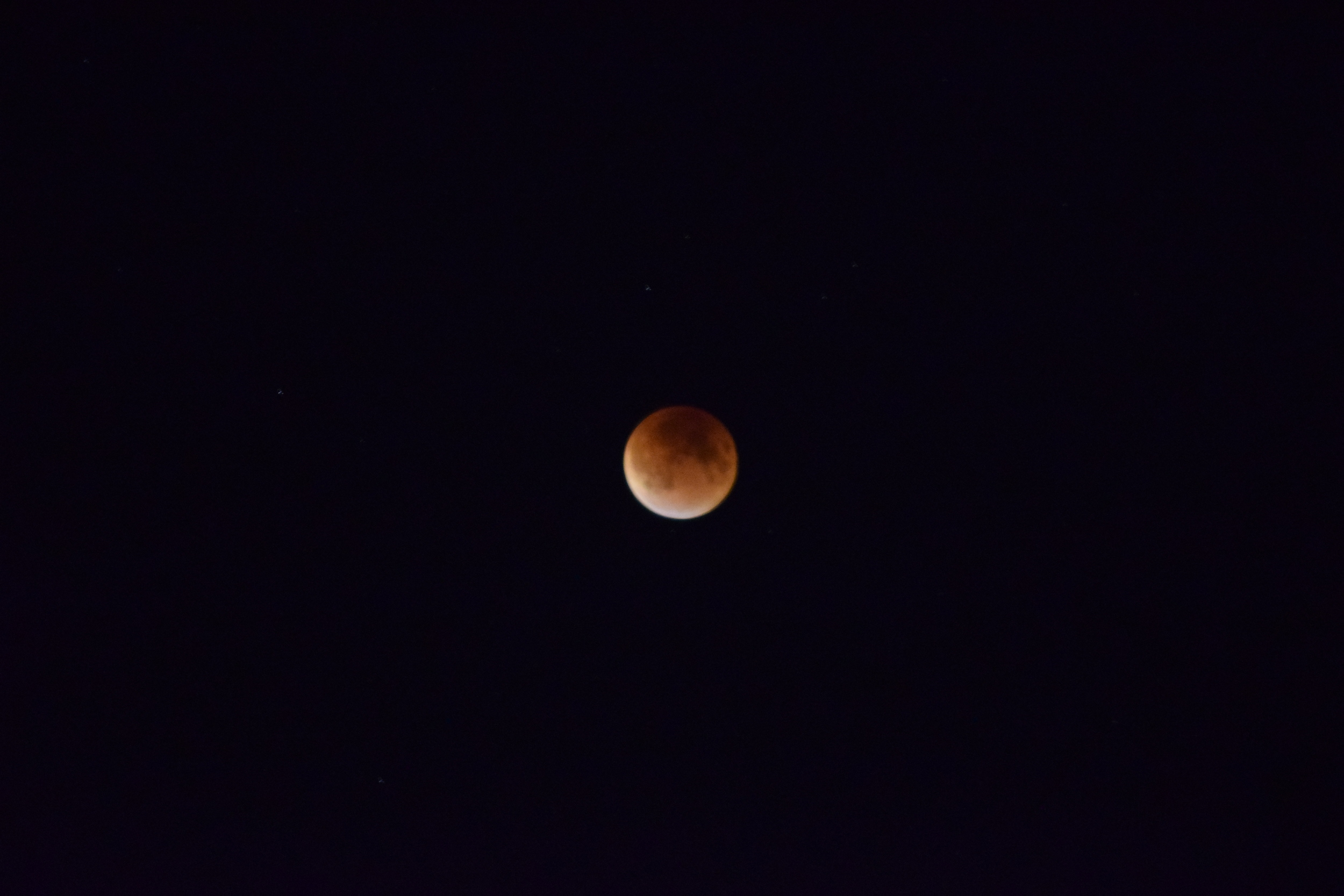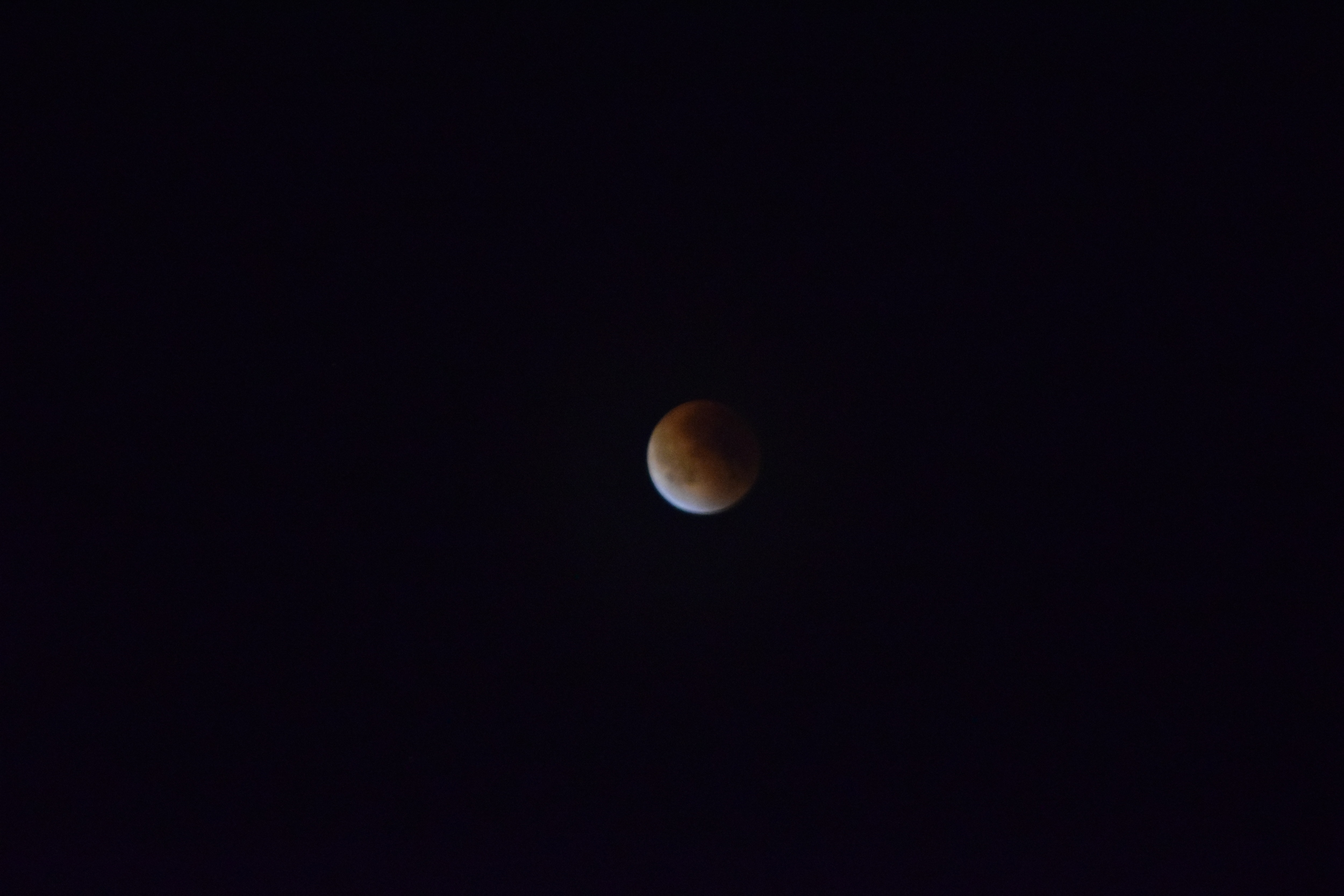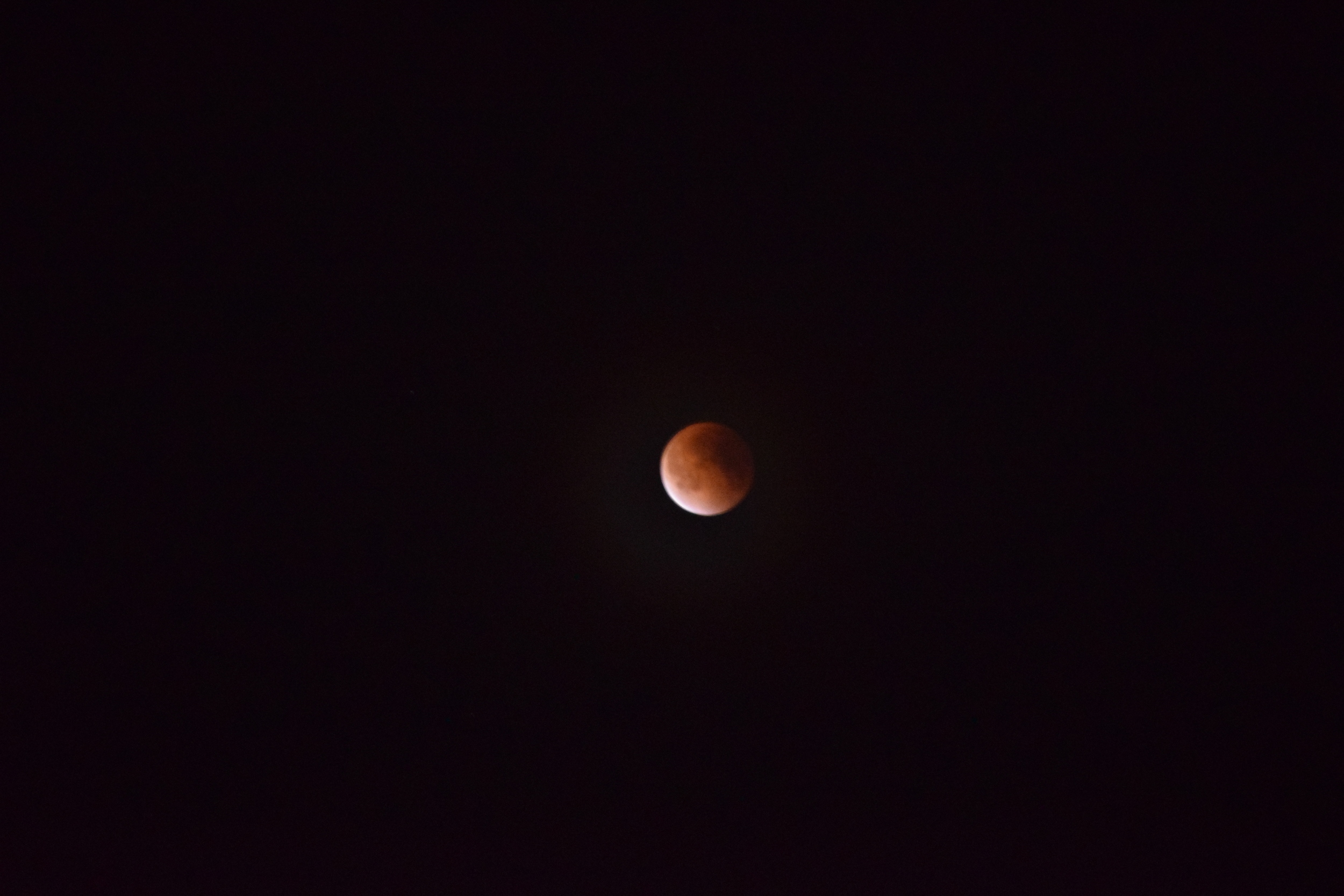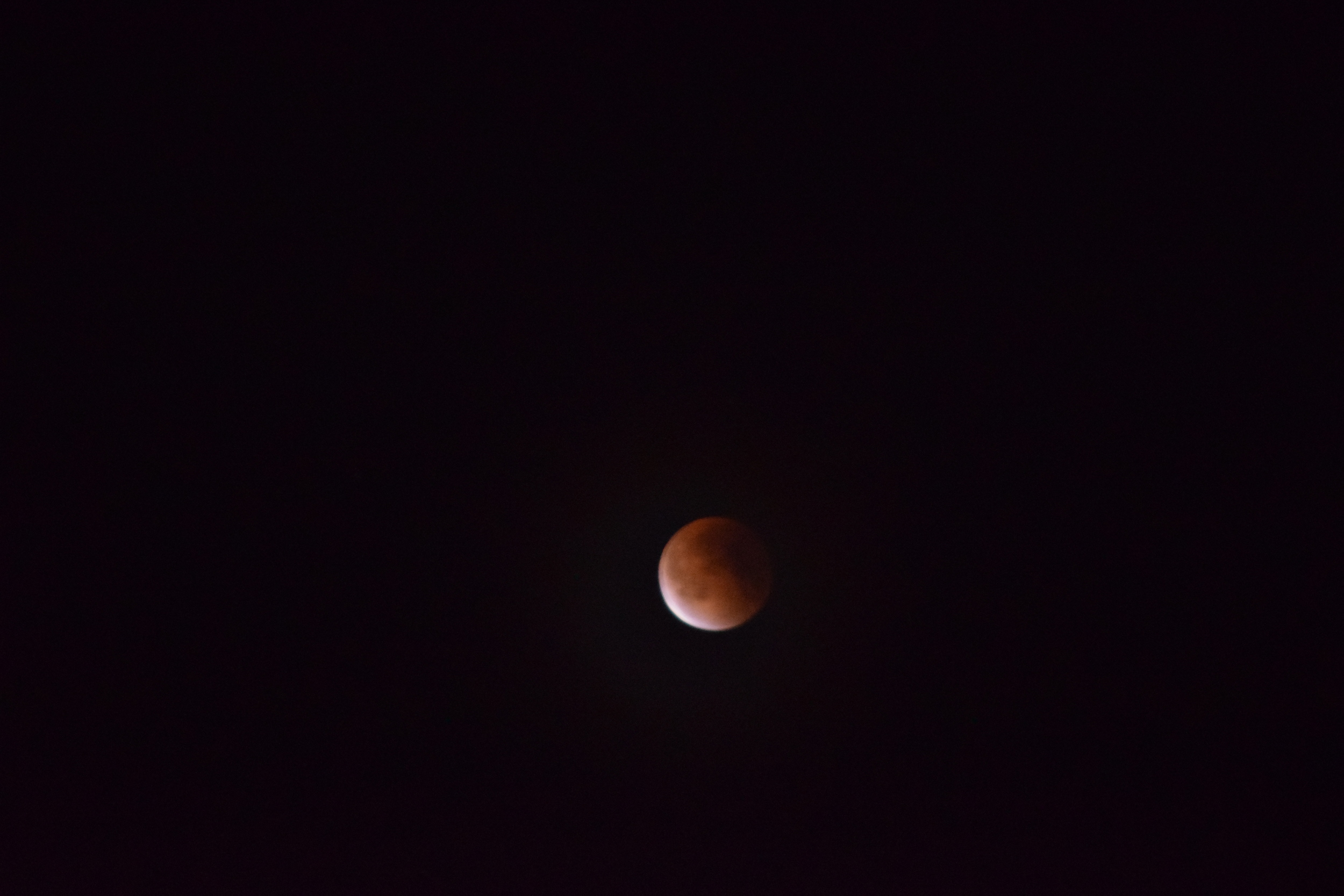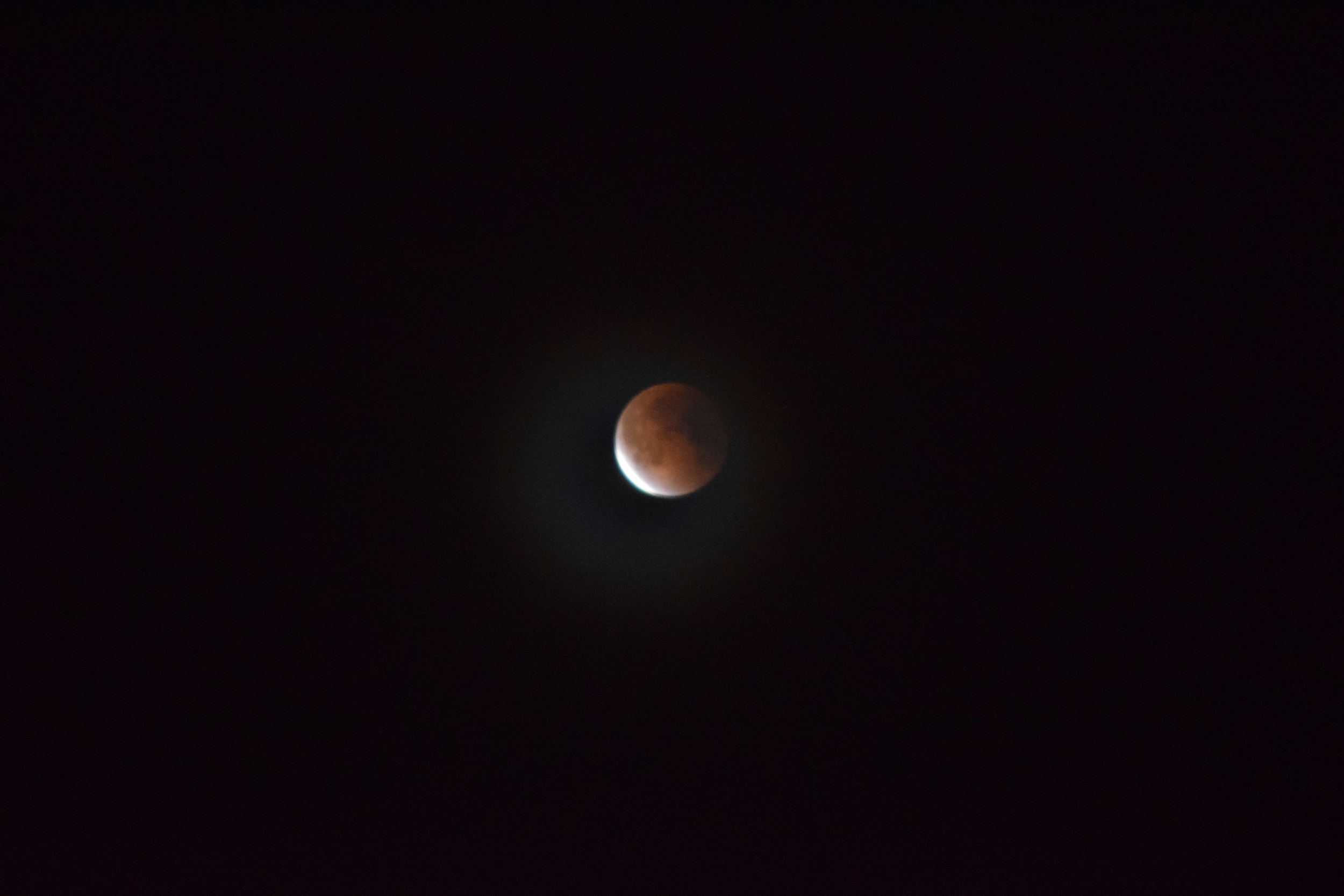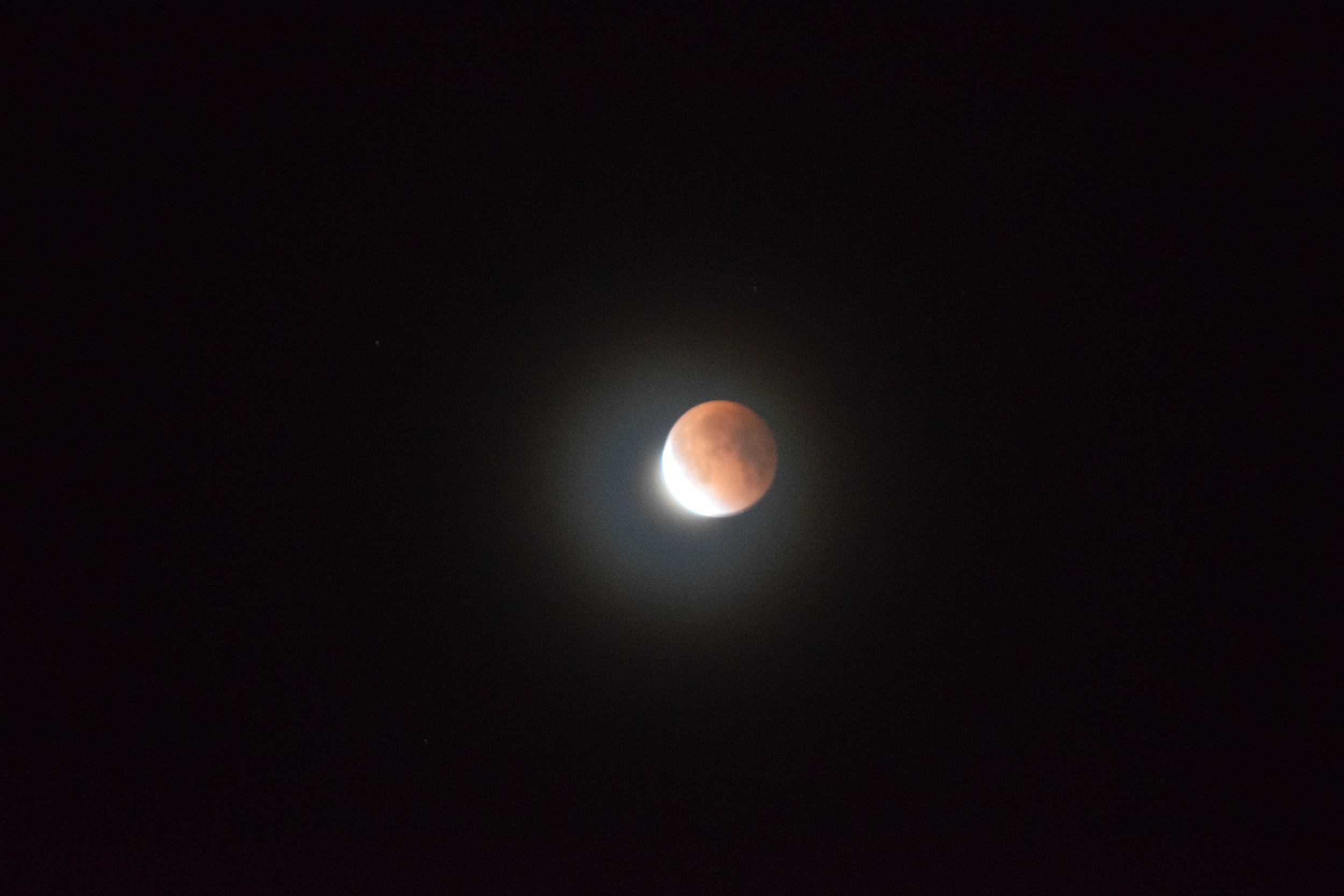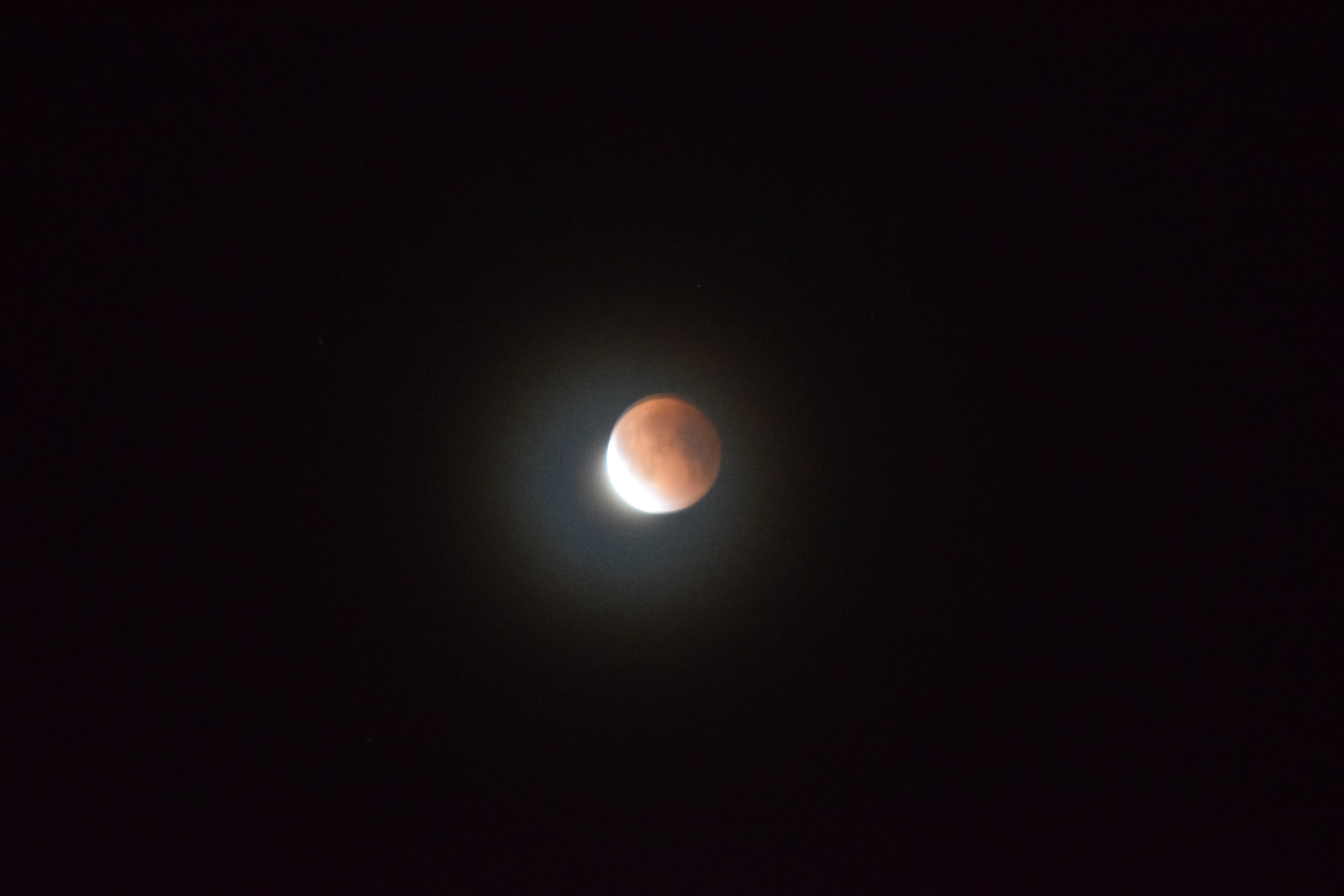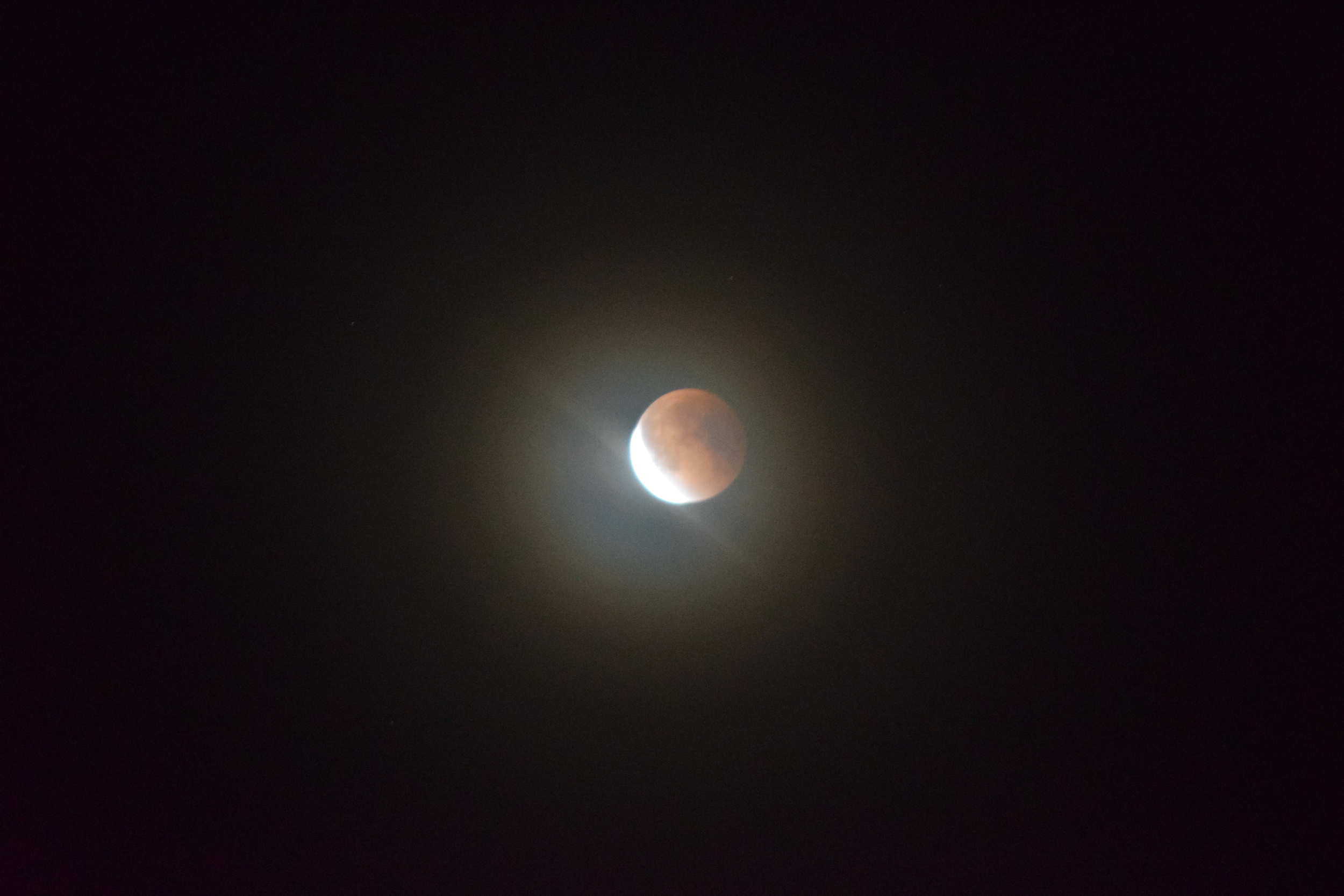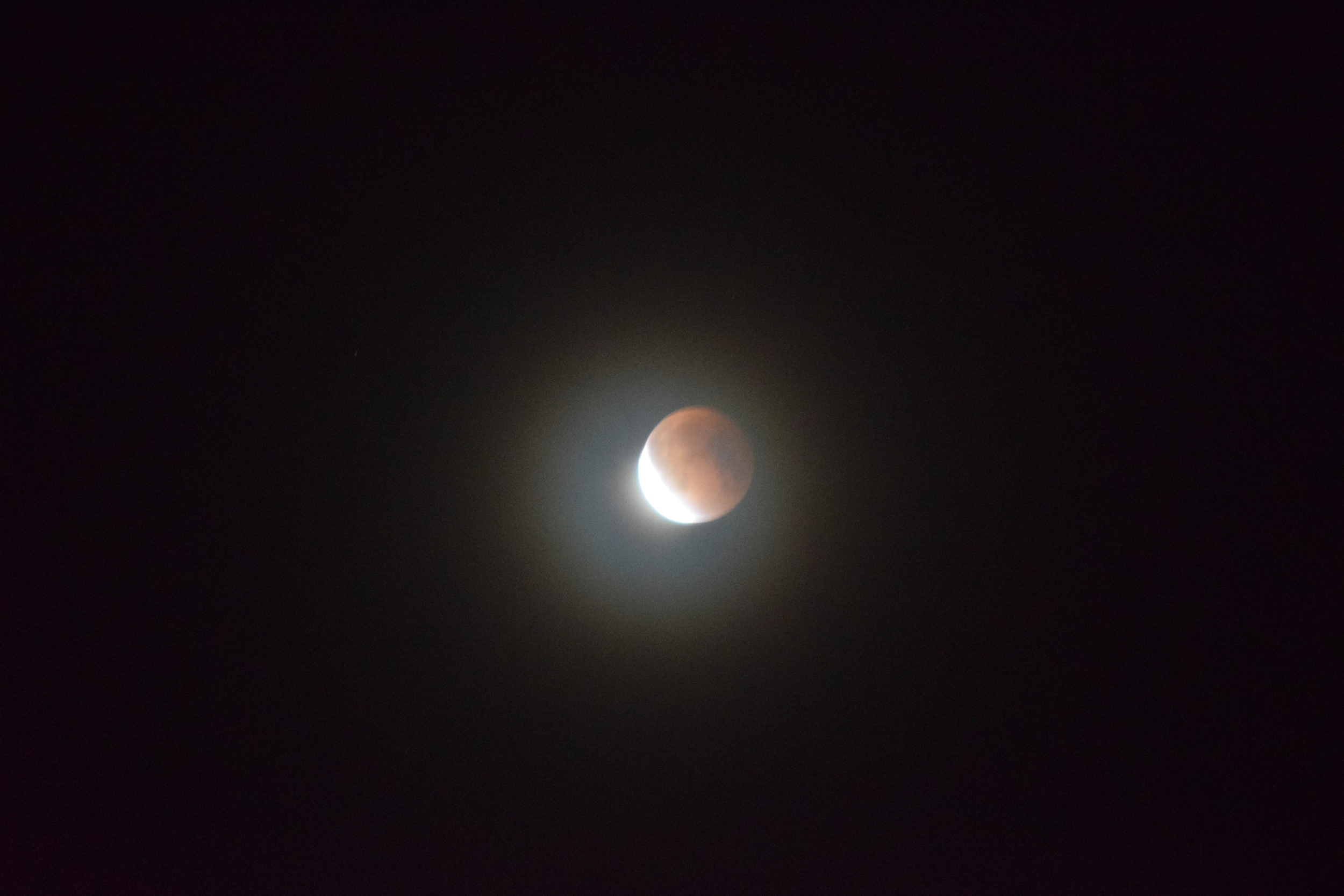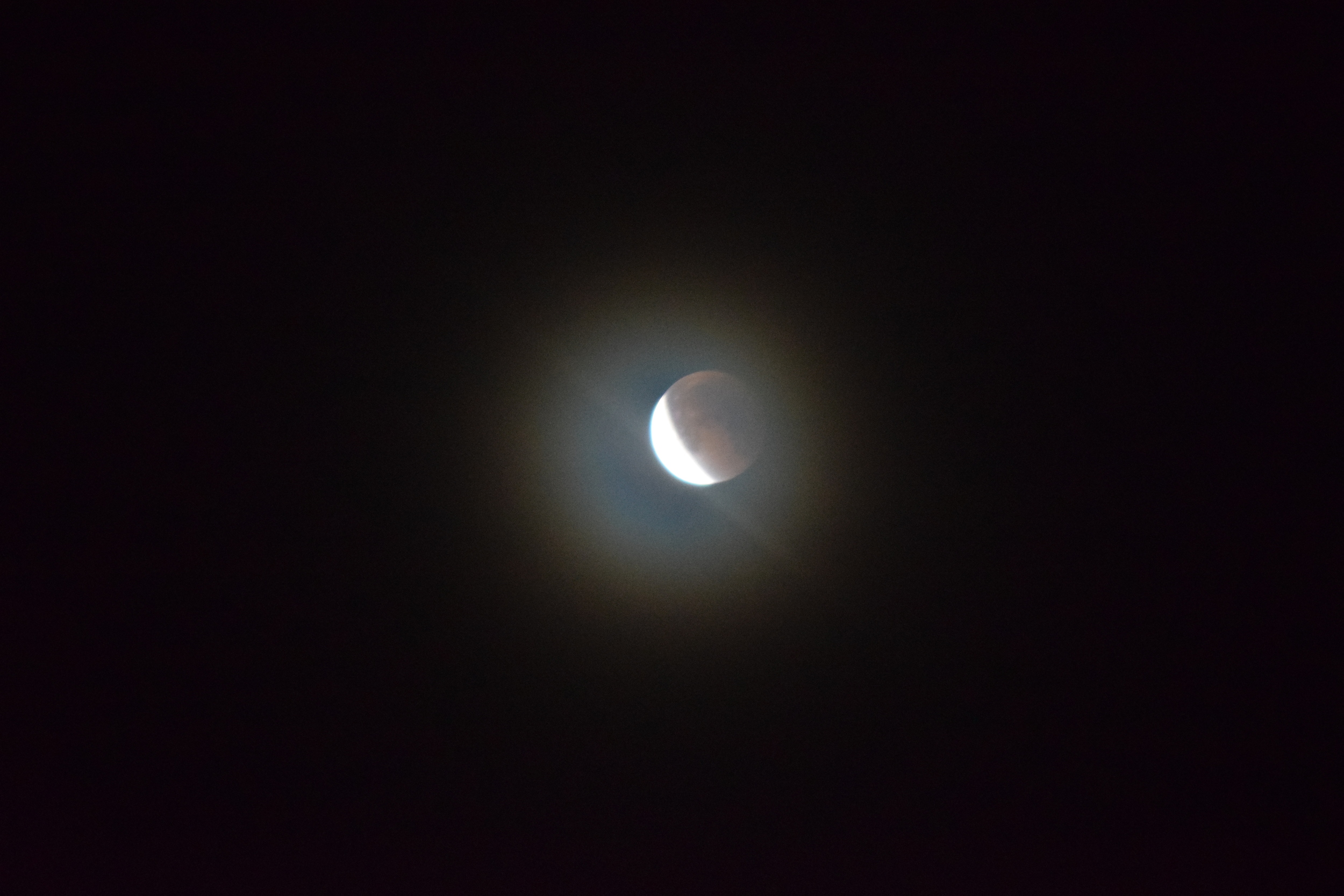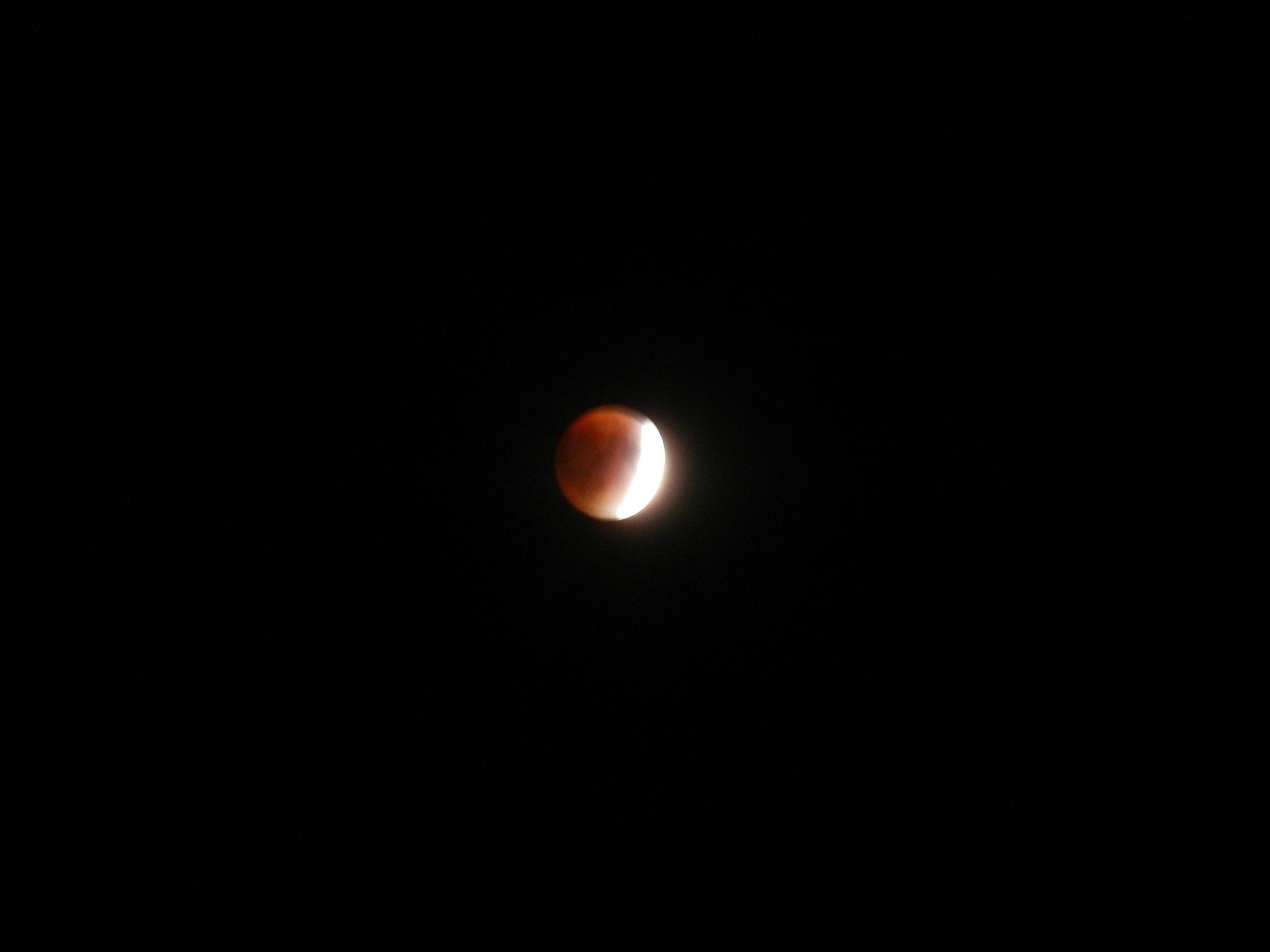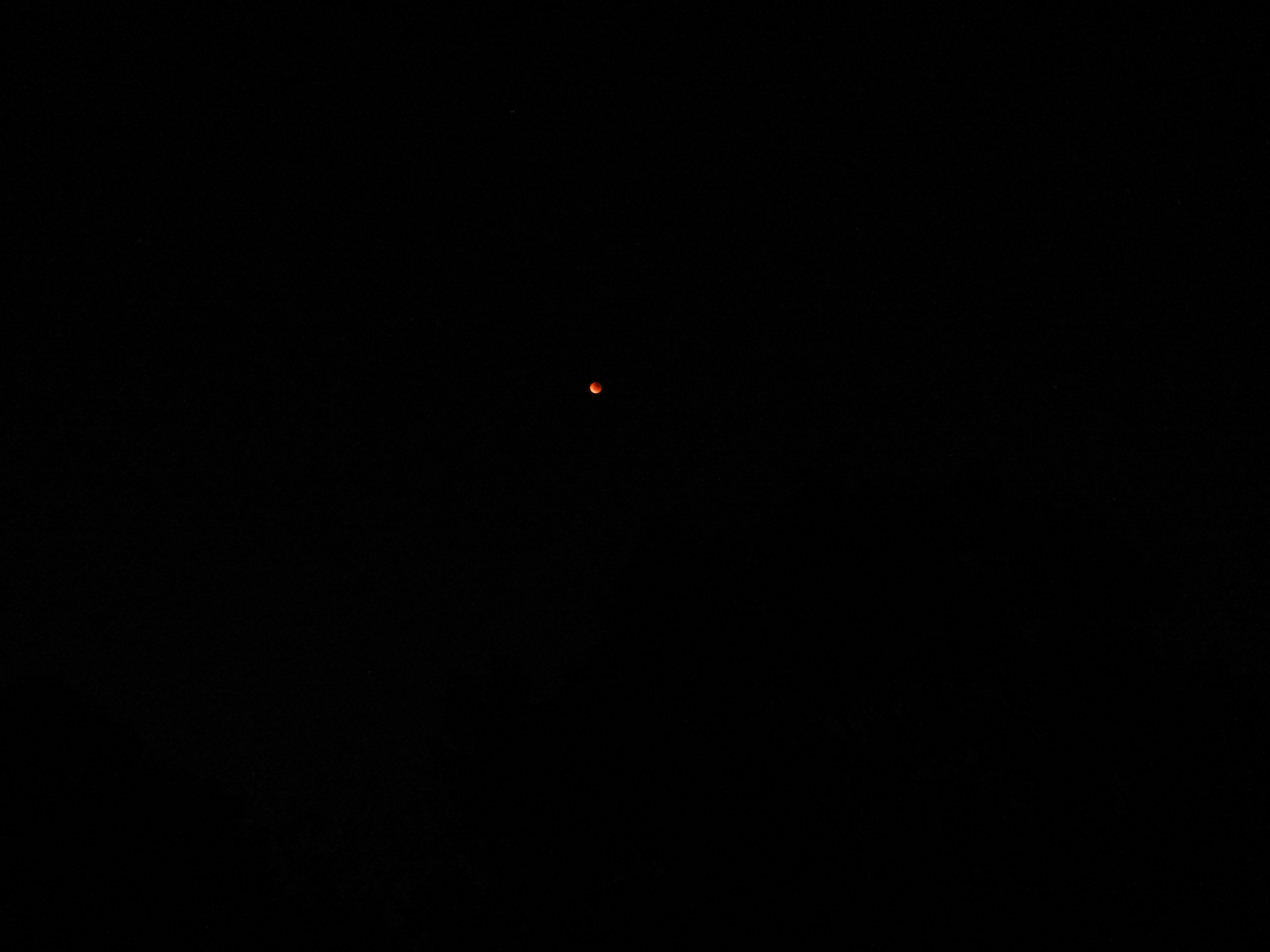Astro-Photography: Super Moon Total Lunar Eclipse
"A NEW ENGLAND SUPER MOON TOTAL LUNAR ECLIPSE "
- AN ANIMATED GIF
CREDIT: Alexander & Nik Orphanos
Image/Animation Credit: Alex & Nik Orphanos
Some friends of the show shared their photos of the amazing Super Blood Moon!
Images taken by Chris Tran, Photographer
Images taken (with a telescope) by Tyler Lapierre, Engineer
Me and my brother hanging out, watching the Super Blood Moon with our equipment.
Luckily, Sunday night was clear in Massachusetts for the entire 3 hour event. For those unaware, this is a rare thing. It makes getting into astronomy pretty much impossible unless you go to New Hampshire, Maine or Vermont. So, I had the chance to capture the whole event from my own backyard. I grabbed my old Celestron NexStar Telescope, a camera tripod, my Nikon CoolPix and the Nikon D3300. Luckily, the Moon was just breaching the tree line around 9PM when the Lunar Eclipse was about to start. That meant I only needed to post up in one place, and even better, in my own yard. Otherwise, I would have had to change spots "mid-eclipse" or even be in the middle of the street. Not the best option.
The term, "Super Moon" is definitely misleading to the rest of humanity. Scientifically, it makes sense, as it's 14% larger in diameter, but to the regular human being walking around at night - you would never be able to tell the difference. But, it gets people talking about it - and that's good enough for me.
A total Lunar Eclipse is pretty special too. Especially if you are the type of person who stays in the same place a.k.a a typical New England-er. There are Lunar eclipses that happen all the time, but to be in the place where you can see a total Lunar eclipse happen is more unlikely. We just got lucky that the rotation of the Earth and the orbital alignment of the Sun, Earth & Moon (respectively) happened just right. I'm just glad that I could experience it from my own back yard.
I've only tried to capture the Moon once before, in 2014 during a SuperMoon. I went to a local elementary school field, where the tree line was lower. I was trying (with the help of my brother) for the first time to use the digital camera to grab pictures through the telescope lens. This is where I first started to really grasp how difficult and NOT EASY photography is. It really is an art form. I mean, obviously it's an art form, but you don't really have respect for it unless you try and experience it for yourself. This Super Blood Moon was no different. Especially since the entire event was going to last 3 hours.
A picture of one of the Super Moon's in 2014 through my CELESTRON Nexstar
Image Credit: Alex & Nik Orphanos
Since the last Astro-photography outing with the telescope in 2014, I have misplaced, nay, lost my lens set. You think to yourself, "Hey, I'll put it in this place so they will be safe. That way, they'll be OK when I go for them next time". But then you realize, it's such a safe spot, even YOU can't find it again. I think we've all been there.
All I have left is a MA 20mm Wide Angle/Long Eye Relief lens. We could fit the Moon inside the lens pretty fully, but getting the camera in the right spot and take a picture was impossible. It's probably because you're trying to angle the camera lens (which has a number of different angled glass) to line up with the telescope's numerous angled glass lenses. Needless to say, we gave up on the telescope/camera combo after a few minutes. Especially since I set up at 9PM, and the eclipse was already starting.
Here's the list of things I learned:
1. I need a new telescope.
Mine is old and based on even older electronics (it's from the late 90's)
2. The "red" of the Moon did not show up on some of my cameras or in the telescope.
I'm not sure why that is, but I know it's a thing. Maybe the lens has a special coating?
3. Having the right camera equipment makes things SO much easier, and actually possible.
If I'm going to do this seriously, I need to get a few things.
4. My cellphone takes awful pictures in the dark
5. A Lunar eclipse has two things that make taking pictures difficult
Too much Light & Not enough Light
6. Photographers take a lot of pictures so they can choose from the different angles, settings, zooms, etc.
They are not just fiddling with things to seem busy. I know that now.
7. Getting the right focus on an image far away, when you're lens is set at the end of its limit, is not easy
8. Having music with you is key.
Playing & singing Frank Sinatra's "Fly me to the Moon" was incredible. I went on a Frank Sinatra album tour that night, and it did not disappoint!
Trying to figure out what I was doing
The best pictures from the Night
All in all it was a great time watching and capturing the whole event! I hope you had the chance to enjoy it as well. But even if you didn't, we have all these great pictures so you can at least see what we did. I'll try to catch more of these events in the future, and maybe we'll do a live podcast during one of them!
Make sure to listen to episode #052 of the podcast where I talked about the whole event as well - and NASA's new finding of "flowing" water on Mars!
Thank you to Chris and Tyler for sharing your photos!

